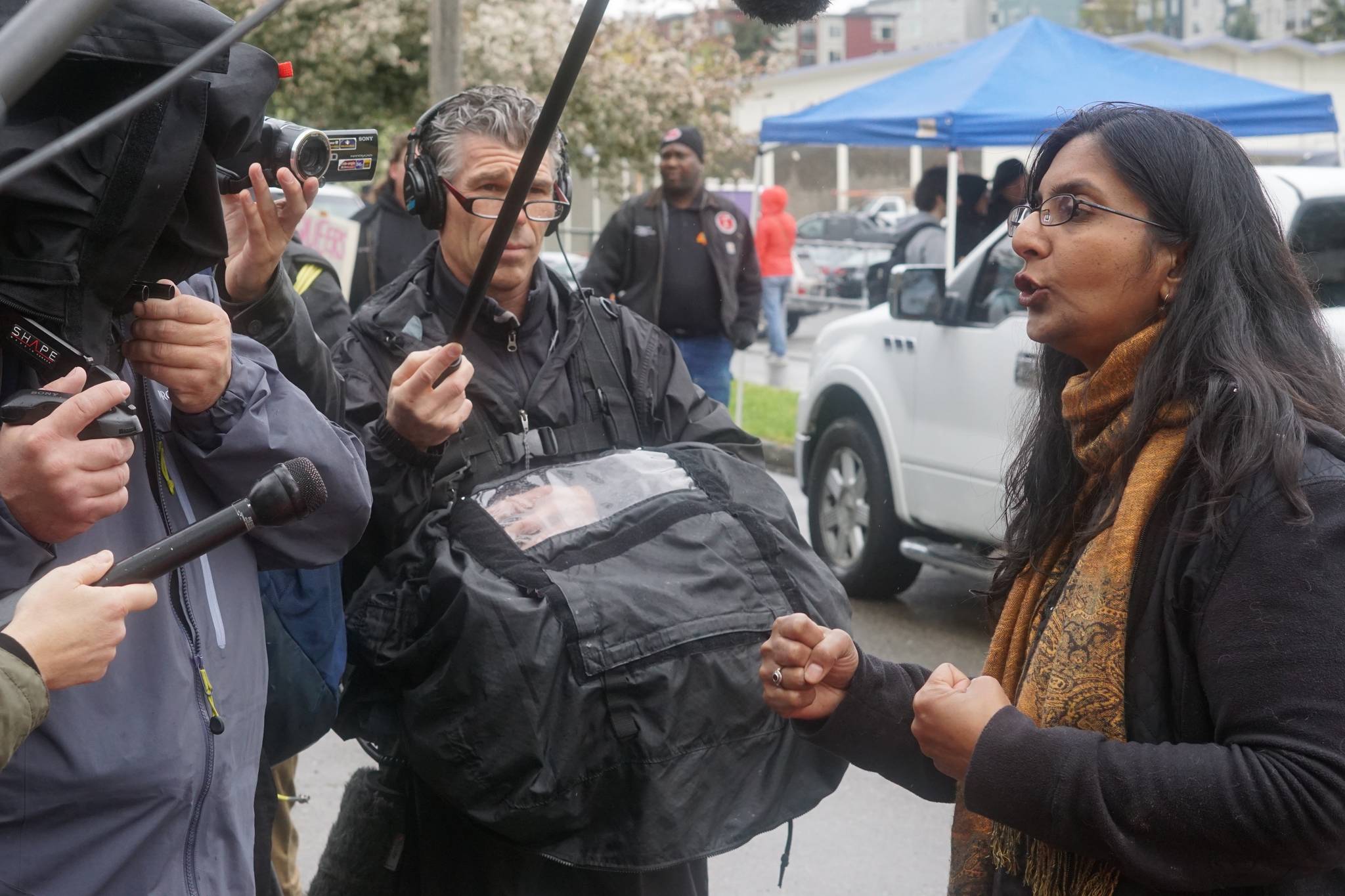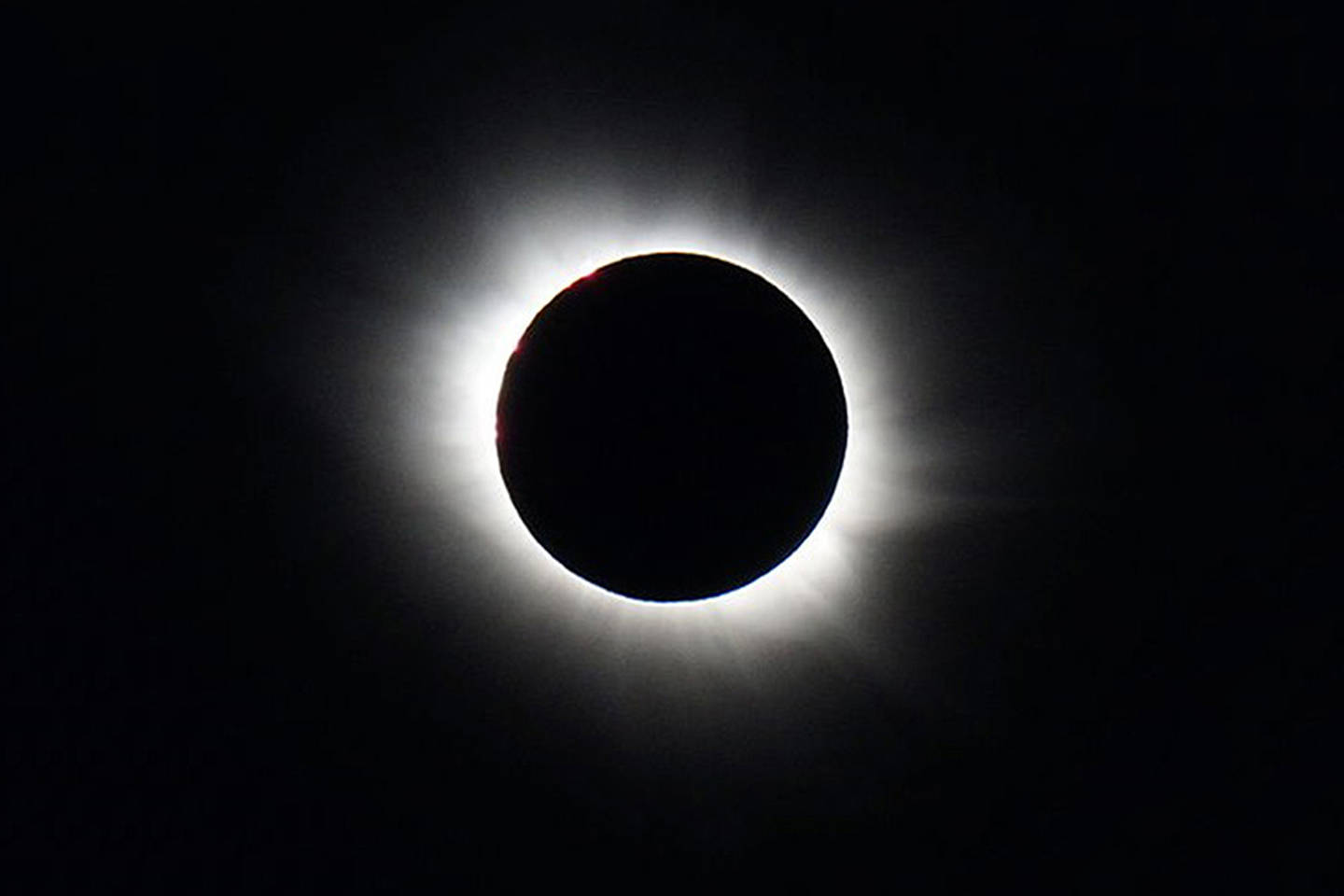“Amazon, stop funding bigotry. Please pull your ads from Breitbart.”
So says a mobile billboard, its message written in stark white against a black background, that has recently become a fixture in Seattle as it is carted around South Lake Union on the back of a truck. The message of the ad could hardly be clearer: Right now, Amazon ads appear on Breitbart, the media site that’s partly credited for fostering the alt-right movement that helped catapult Donald Trump to the Oval Office; the backers of the billboard want them to stop.
Anyone see our billboard at #PrideSeattle today? pic.twitter.com/Zdjhjvr7py
— Sleeping Giants (@slpng_giants) June 25, 2017
But who’s behind the effort? That’s not so clear.
Sleeping Giants, the group taking responsibility, is an anonymous marketing collective that developed a presence on Twitter after the 2016 election. Their main goal was to inform companies that their ads were showing up on controversial sites such as Breitbart, which until recently was run by Stephen Bannon, now a senior advisor to President Trump.
Online ads function in such a way that many times companies don’t know where their brands are showing up, the founder of Sleeping Giants tells Seattle Weekly by phone.
This is because of programmatic advertising, a low-cost and low-effort way to reach a particular demographic with digital ads, but one that leaves the advertiser little to no control on where, exactly, their ads show up. Sleeping Giants has taken it upon themselves to notify the companies whose ads appear on Breitbart’s website.
“I really have little recollection on how the whole thing got started,” says the founder, who refused to provide their name. “It came out of an emotional time. It came out of how no one knew about this problem before.”
The members of Sleeping Giants all work in digital-marketing related fields. They choose to remain anonymous so their anti-Breitbart efforts don’t interfere with their day jobs. For our interview, the founder called from a Google number that could not be traced.
Since November, Sleeping Giants has succeeded in convincing nearly 2,300 companies to sever their ties with Breitbart, 50 to 70 percent of of which didn’t have any idea their ads were showing up on site. Amazon, though, has become something of a white whale.
“We’ve been contacting Amazon from the start and they haven’t gotten back to us once,” they say.
For eight months Sleeping Giants has tweeted at, emailed, and called Amazon. There have been online petitions, says the founder, and petitions within Amazon that had the support of 564 employees.
“In our minds they have every right to advertise how they want to, but we would like to know their position,” the Sleeping Giants founder says. “But as long as we don’t know their position it’s hard to judge their intent.”
For that reason, Sleeping Giants decided to take their campaign out to the real world for the first time.
The effort started when one of Sleeping Giants’ followers set up a fundraiser to put up a billboard in Seattle. It raised $8,000 in 36 hours.
The plan was to put up a traditional, stationary billboard along I-5 between Sea-Tac and downtown Seattle.
“The billboard company had our creative piece for three weeks and right before we were supposed to sign on the dotted line, they decided not to do it,” the Sleeping Giants founder says. “I have to imagine they got some kind of pressure.” (We checked with a billboard company to see if this sounded plausible; they said it did).
They had to pivot quickly and ended up going with a mobile billboard. The medium was beneficial because they could get up close to popular tourist locations in Seattle and Amazon itself.
Currently, Sleeping Giants’ presence in Seattle is solely about getting Amazon to give a response.
Though a critic of Donald Trump throughout the 2016 campaign season, Amazon CEO Jeff Bezos has remained silent ever since his presidential win (unless you count editorials in the Washington Post, which he owns). That silence is punctuated, Sleeping Giants contend, by Amazon’s non-response and seeming ambivalence toward advertising on Breitbart.
“It strikes me as very tone deaf,” the founder says, “there are a lot of people internally that are Muslim, black, or female. Advertising on a platform like Breitbart speaks to who they are as a company. I’m hoping they have some kind of answer.”
news@seattleweekly.com








